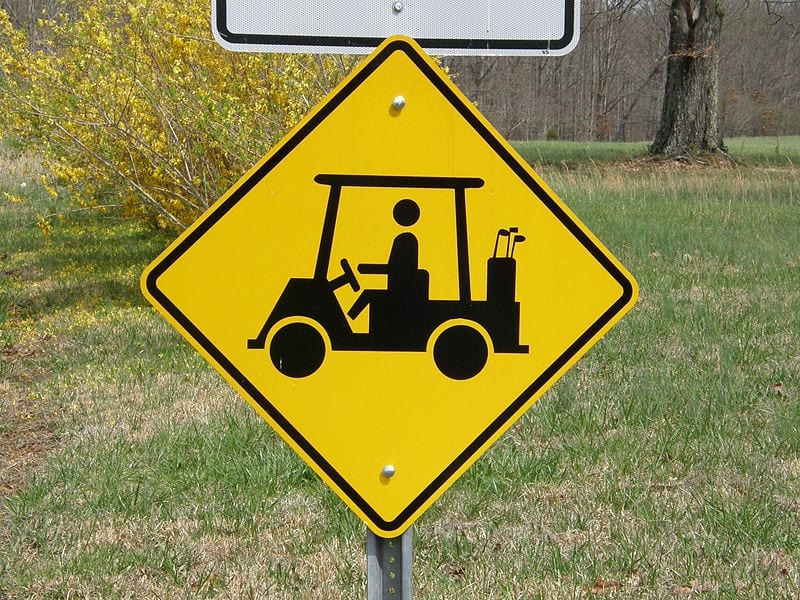Low speed vehicles are starting to cause some significant coverage confusion in the United States.
As low speed vehicles (LSV), such as street legal golf carts (also called golf cars), become increasingly popular, the number of questions that have been popping up about covering their use through auto or homeowners insurance have also been increasing.
Insurance companies in states where these LSVs are becoming commonplace are answering more consumer questions.
There is an important difference between the type of vehicle that would be covered under homeowners insurance and the type that would require an auto policy. Insurers have been trying to make certain that the owners of these vehicles understand the difference between the two forms of coverage. The primary issue is between the types of vehicles that are and are not street legal.
Florida drivers of street legal golf cars are frequently making the mistake of assuming homeowners insurance is enough.
 In that state, it is possible to drive an LSV that is street legal. That vehicle will have a VIN (vehicle identification number). Any machine with a VIN is no longer covered under a property insurance policy.
In that state, it is possible to drive an LSV that is street legal. That vehicle will have a VIN (vehicle identification number). Any machine with a VIN is no longer covered under a property insurance policy.
Instead, under the law in Florida, any electric vehicle with four wheels and that is capable of achieving a speed that is faster than 20 miles per hour – but with a maximum speed that is no greater than 25 miles per hour – is considered to be an LSV. Those can be driven exclusively on streets where local jurisdiction permits them and on roads where the speed limit never rises above 35 miles per hour. They must be equipped with many of the safety features required in standard cars.
While an inexpensive rider can be purchased in order to cover a golf cart through a homeowners insurance policy, what many drivers don’t realize is that this provides very limited coverage and will not include accidents that occur while on the road. It covers only damage to the vehicle while it is on the owner’s property. It is, therefore, very important for vehicle owners to speak with their insurers or agents in order to make certain that they have purchased the coverage that they need for the use of their LSVs.
